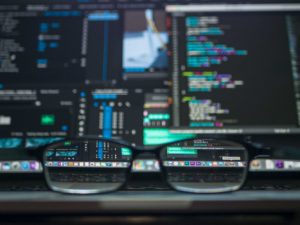 The Rise of Artificial Intelligence in Tax and Accounting
The Rise of Artificial Intelligence in Tax and Accounting
By Chris Wilson, CISSP
If I say the words Artificial Intelligence (AI) what do you think about? Many people think of AI as humans turning into machines or machines that have the ability to take over the world. They’re not far off, but AI is an incredibly broad term. AI, at its simplest definition, means making computers act intelligently. Some examples would be Apple’s Siri, Google’s self-driving cars, IBM Watson, and Facebook’s image recognition software. The truth is that AI may seem like a scary and or uncertain term, but realistically AI is being used practically everywhere, from farming to robotics, at NASA and in your local grocery store.
How is AI being used, or how will it be used, in the Tax and Accounting industry?
First, we must define some technologies that are similar to AI and are sometimes used in conjunction with it. The line can get a little blurry, so defining these two similar yet different technologies can help us understand what Artificial Intelligence actually is and what Artificial Intelligence is not.
Robotic process automation (RPA) is a productivity tool that allows a user to configure one or more “IF/THEN” statements (sometimes called scripts) that can mimic or emulate selected tasks within an overall business or IT process.
Machine learning is a branch of AI and computer science which focuses on the use of data and algorithms to imitate the way that humans learn, gradually improving its accuracy. In contrast with RPA, which is logical and condition-oriented, machine learning requires the computer to have some degree of cognitive capability. The computer must be trained to detect data patterns or relationships that will then help it to draw conclusions.
Artificial Intelligence relies on large quantities of data, and then uses the historical data to help determine the right way (or better way) to perform a task. Identifying fraud and/or errors might be the best and biggest example of how AI has improved the Tax and Accounting industry. AI can help find subtle clues hidden in mounds of data that are sometimes missed or overlooked by auditors. This increased visibility of anomalies within an organization’s data can in turn increase the trust that stakeholders have with their Tax and Accounting firm. Accounting professionals equipped with this type of data analytics advantage can provide greater insights and more accurate projections, enabling them to continue to fulfill their role as trusted business advisors.
A few other benefits that Artificial Intelligence provides are identifying possible deductions and tax credits and making tax forecasting more accurate. When AI is used to analyze a particular industry, or better yet, a specific business or geographical location within that industry, the AI can use the given data to predict what will happen next. This allows for the business as well as its auditing firm to be ahead of the curve and ahead of its competition.
So next time you think of or hear the words Artificial Intelligence, stop thinking about sci-fi movies or the end of the human race and take a moment to ponder “how can it work for me?”

